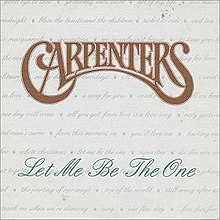
"Me and Bobby McGee" is a song written by American singer-songwriter Kris Kristofferson and originally performed by Roger Miller. Fred Foster shares the writing credit, as Kristofferson wrote the song based on a suggestion from Foster. A posthumously released version by Janis Joplin topped the Billboard Hot 100 in 1971, making the song the second posthumously released No. 1 single in U.S. chart history after "(Sittin' On) The Dock of the Bay" by Otis Redding. Gordon Lightfoot released a version that reached number 1 on the Canadian country charts in 1970. Jerry Lee Lewis released a version that was number 1 on the country charts in December 1971/January 1972 as the "B" side of "Would You Take Another Chance on Me". Billboard ranked Joplin's version as the No. 11 song for 1971.
"For All We Know" is a soft rock song written for the 1970 film Lovers and Other Strangers, with music by Fred Karlin and lyrics by Robb Wilson and Arthur James. Both Royer and Griffin were founding members of the soft rock group Bread. It was originally performed, for the film's soundtrack, by Larry Meredith. The best known version of the song is by American pop duo the Carpenters which reached No. 3 on the US Billboard Hot 100 chart and No. 1 on the US Billboard Easy Listening chart in 1971. The song was also a hit for Shirley Bassey at the same time in the United Kingdom. It has since been covered by various artists, including Petula Clark.

"All I Ever Need Is You" is a popular song written by Jimmy Holiday and Eddie Reeves, and initially recorded by Ray Charles for his 1971 album, Volcanic Action of My Soul. The most well-known version of the song is the hit single by Sonny & Cher which, in 1971, reached No. 7 on the U.S. Billboard Hot 100, and was their single of greatest chart longevity, spending 15 weeks on that chart. Their album by the same title sold over 500,000 copies reaching RIAA gold status.

"Rainy Days and Mondays" is a song by the Carpenters from their self-titled third album, with instrumental backing by the Wrecking Crew. It was written by Paul Williams (lyrics) and Roger Nichols (music), who had previously written "We've Only Just Begun," another hit for the duo. The B-side on the single is "Saturday," a song written and sung by Richard Carpenter.
"Superstar" is a 1969 song written by Bonnie Bramlett and Leon Russell, that has been a hit for many artists in different genres in the years since. The best-known versions are by the Carpenters in 1971, Luther Vandross in 1983, and Sonic Youth in 1994.
"Reason to Believe" is a song written, composed, and first recorded by American folk singer Tim Hardin in 1965. It has since been recorded by many artists, most notably by the Carpenters in 1970, and Rod Stewart in 1971 and 1993.

"I Won't Last a Day Without You" is a song by The Carpenters with lyrics written by Paul Williams and music composed by Roger Nichols. It was released in the U.K. in September 1972, paired with "Goodbye to Love" as a double-A side. The single reached No. 9 and spent 14 weeks on the chart. It was later released in the U.S. and became a hit single for them in 1974, reaching No. 11 on the Billboard Hot 100 chart and number one on the easy listening chart. It was the Carpenters' ninth No. 1 on the easy listening chart.

"Merry Christmas, Darling" is a Christmas song by the Carpenters, and originally recorded in 1970. It was first available on a 7-inch single that year, and was later re-issued in 1974 and again in 1977. The single went to number one on Billboard's Christmas singles chart in 1970 and peaked at number 41 on Cashbox.

"I Need to Be in Love" is a song written by Richard Carpenter, Albert Hammond and John Bettis. It was released as a single on May 21, 1976. It was featured on the A Kind of Hush album, which was released on June 11 of the same year.
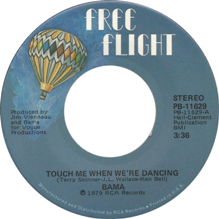
"Touch Me When We're Dancing" is a song written by Terry Skinner, J. L. Wallace and Ken Bell. Skinner and Wallace headed the Muscle Shoals, Alabama session group Bama, who first recorded this song and released it as a single in 1979 reaching number 42 on the Billboard Easy Listening chart and number 86 on the Billboard Hot 100 chart. The song was later recorded by The Carpenters in 1981 for their Made in America album. In 1984, it was recorded by country music artists Mickey Gilley and Charly McClain for their 1984 duet album It Takes Believers and in 1986 by the country music group Alabama.
"Make Believe It's Your First Time" is a song written by Bob Morrison and Johnny Wilson. Originally recorded by Bobby Vinton, the song was twice recorded by Karen Carpenter, both as a solo act and as a member of the Carpenters.
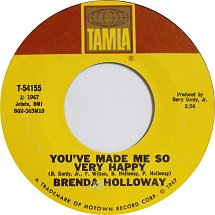
"You've Made Me So Very Happy" is a song written by Brenda Holloway, Patrice Holloway, Frank Wilson and Berry Gordy, and was released first as a single in 1967 by Brenda Holloway on the Tamla label. The song was later a huge hit for jazz-rock band Blood, Sweat & Tears in 1969, and became a Gold record.

"One Less Bell to Answer" is a song written by Burt Bacharach and Hal David. Originally written in 1967 for Keely Smith, the song was rediscovered in late 1969 by Bones Howe, the producer for the 5th Dimension, and the song was included on the group's 1970 debut album for Bell Records, Portrait. Lead vocals on the single were sung by Marilyn McCoo.

The discography of American country artist Skeeter Davis contains 32 studio albums, 18 compilation albums, 59 singles, 53 lead singles, six collaborative singles, two other charted songs and two additional appearances. Davis was first one half of the duo, The Davis Sisters before embarking on a solo career with the RCA Victor label. Her second single was 1957's "Lost to a Geisha Girl", which reached the top 15 of the American Billboard Hot Country Songs chart. It was followed in 1959 by the top five country selection, "Set Him Free". The same year, Davis's debut studio album was issued on RCA Victor titled I'll Sing You a Song and Harmonize Too. Her career momentum continued to build in 1960 with two top five back-to-back singles: "(I Can't Help You) I'm Falling Too" and "My Last Date ". Both selections also climbed into the Billboard Hot 100 top 40. They were featured on Davis's second studio album called Here's the Answer. Between 1961 and 1962, Davis had top ten Billboard country singles with "Optimistic" and "Where I Ought to Be".

"Me and You and a Dog Named Boo" is the 1971 debut single by Lobo. Written by Lobo under his real name Kent LaVoie, it appears on the Introducing Lobo album.
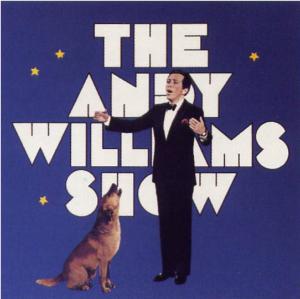
The Andy Williams Show is the twenty-sixth studio album by American pop singer Andy Williams that was released in the fall of 1970 by Columbia Records. In his review on AllMusic.com, William Ruhlmann writes that "The Andy Williams Show LP was not a soundtrack recording from the TV series, and it was not really a live album, although it gets categorized as such. What appears to be the case is that Columbia Records took a group of Williams' studio recordings, most of them made during the summer of 1970 and consisting of his versions of recent soft rock hits, and added a lot of canned applause along with some of the kind of musical interludes used to usher numbers on and off on the show, including bits of its "Moon River" theme music at the start and the finish."

You've Got a Friend is the twenty-eighth studio album by American pop singer Andy Williams, released in August 1971 by Columbia Records. The album bears a striking resemblance to the Johnny Mathis album You've Got a Friend released that same month. Besides sharing their name, the two albums are both made up of covers of easy listening hits of the time, with 11 songs each, and the two albums have seven songs in common that are positioned in a similar order.
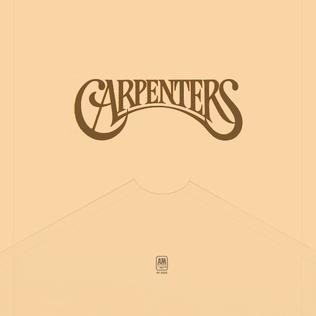
Carpenters is the third studio album by American music duo the Carpenters. Released on May 14, 1971, it was their most successful studio album, reaching number two on the Billboard 200 chart and number 12 in the UK, as well as being certified 4× Platinum by the RIAA. The album contained the hit songs "For All We Know", "Rainy Days and Mondays" and "Superstar".
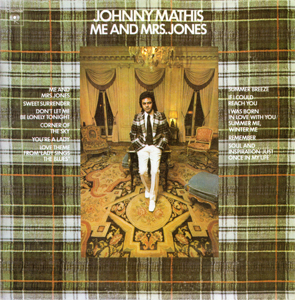
Me and Mrs. Jones is an album by American pop singer Johnny Mathis that was released in January 1973 by Columbia Records. While it does cover several big chart hits of the day like his last album, Song Sung Blue, did, it also includes songs that didn't make the US Top 40 or had never charted.

When Will I See You Again is an album by American pop singer Johnny Mathis that was released in March 1975 by Columbia Records and was again predominantly composed of covers of recent hit songs by other artists.
